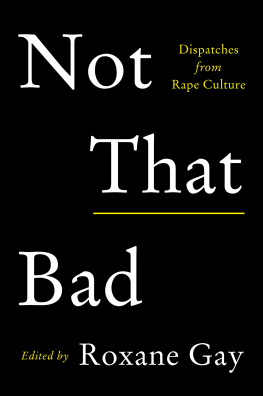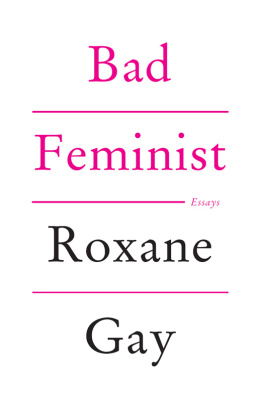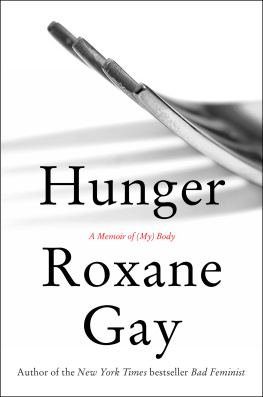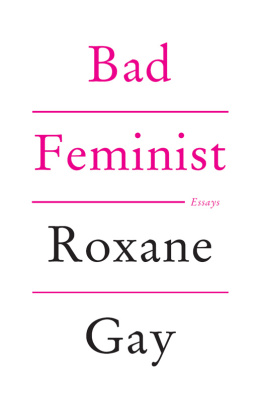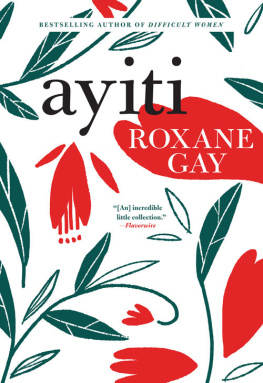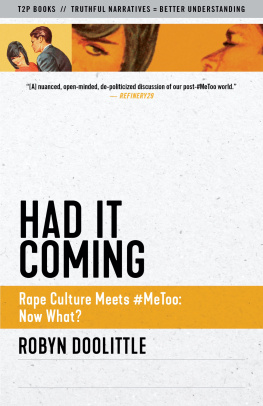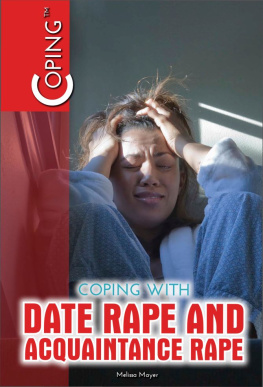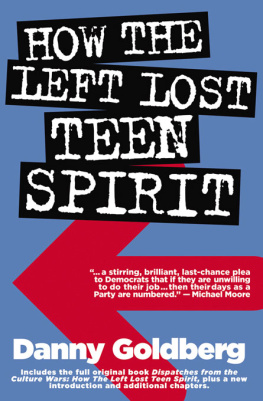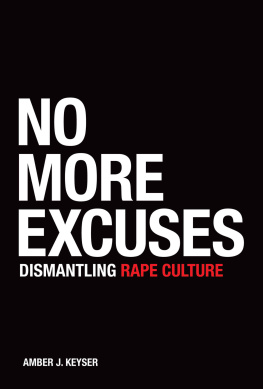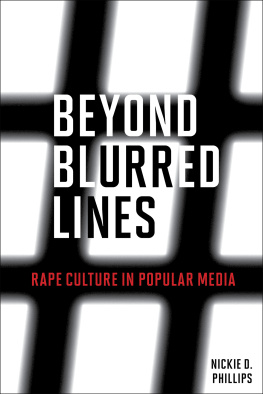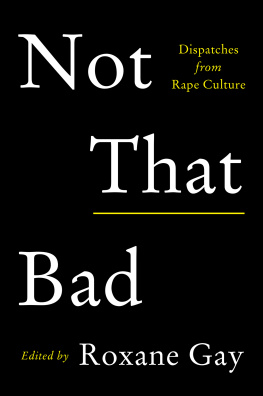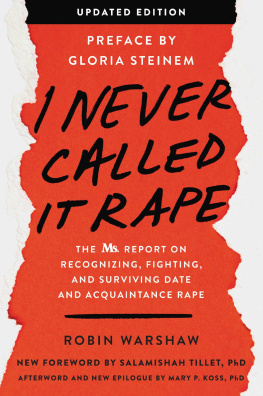Roxane Gay - Not That Bad: Dispatches from Rape Culture
Here you can read online Roxane Gay - Not That Bad: Dispatches from Rape Culture full text of the book (entire story) in english for free. Download pdf and epub, get meaning, cover and reviews about this ebook. year: 2018, publisher: Harper Perenial, HarperCollins, genre: Detective and thriller. Description of the work, (preface) as well as reviews are available. Best literature library LitArk.com created for fans of good reading and offers a wide selection of genres:
Romance novel
Science fiction
Adventure
Detective
Science
History
Home and family
Prose
Art
Politics
Computer
Non-fiction
Religion
Business
Children
Humor
Choose a favorite category and find really read worthwhile books. Enjoy immersion in the world of imagination, feel the emotions of the characters or learn something new for yourself, make an fascinating discovery.
- Book:Not That Bad: Dispatches from Rape Culture
- Author:
- Publisher:Harper Perenial, HarperCollins
- Genre:
- Year:2018
- Rating:4 / 5
- Favourites:Add to favourites
- Your mark:
- 80
- 1
- 2
- 3
- 4
- 5
Not That Bad: Dispatches from Rape Culture: summary, description and annotation
We offer to read an annotation, description, summary or preface (depends on what the author of the book "Not That Bad: Dispatches from Rape Culture" wrote himself). If you haven't found the necessary information about the book — write in the comments, we will try to find it.
Not That Bad: Dispatches from Rape Culture — read online for free the complete book (whole text) full work
Below is the text of the book, divided by pages. System saving the place of the last page read, allows you to conveniently read the book "Not That Bad: Dispatches from Rape Culture" online for free, without having to search again every time where you left off. Put a bookmark, and you can go to the page where you finished reading at any time.
Font size:
Interval:
Bookmark:
For every person who has been scarred by rape culture and
survives, nonetheless.
W HEN I WAS TWELVE YEARS OLD, I WAS GANG-RAPED IN the woods behind my neighborhood by a group of boys with the dangerous intentions of bad men. It was a terrible, life-changing experience. Before that, I had been naive, sheltered. I believed people were inherently good and that the meek should inherit. I was faithful and believed in God. And then I didnt. I was broken. I was changed. I will never know who I would have been had I not become the girl in the woods.
As I got older, I met countless women who had endured all manner of violence, harassment, sexual assault, and rape. I heard their painful stories and started to think, What I went through was bad, but it wasnt that bad. Most of my scars have faded. I have learned to live with my trauma. Those boys killed the girl I was, but they didnt kill all of me. They didnt hold a gun to my head or a blade to my throat and threaten my life. I survived. I taught myself to be grateful I survived even if survival didnt look like much.
It was comforting, perhaps, to tell myself that what I went through wasnt that bad. Allowing myself to believe that being gang-raped wasnt that bad allowed me to break down my trauma into something more manageable, into something I could carry with me instead of allowing the magnitude of it to destroy me.
But, in the long run, diminishing my experience hurt me far more than it helped. I created an unrealistic measure for what was acceptable in how I was treated in relationships, in friendships, in random encounters with strangers. That is to say that if I even had a bar for how I deserved to be treated, that bar was so low it was buried far belowground. If being gang-raped wasnt that bad, then it wasnt at all that bad being shoved or having my arm grabbed so hard it left five bruises in the form of fingerprints or being catcalled for having large breasts or having a hand shoved down my pants or being told I should be grateful for romantic attention because I wasnt good enough and on and on. Everything was terrible but none of it was that bad. The list of ways I allowed myself to be treated badly grew into something I could no longer carry, not at all.
Buying into the notion of not that bad made me incredibly hard on myself for not getting over it fast enough as the years passed and I was still carrying so much hurt, so many memories. Buying into this notion made me numb to bad experiences that werent as bad as the worst stories I heard. For years, I fostered wildly unrealistic expectations of the kinds of experiences worthy of suffering until very little was worthy of suffering. The surfaces of my empathy became calloused.
I dont know when this changed, when I began realizing that all the encounters people have with sexual violence are, indeed, that bad. I didnt have a grand epiphany. I finally reconciled my own past enough to realize that what I had endured was that bad, that what anyone has suffered is that bad. I finally met enough people, mostly women, who also believed that the terrible things they endured werent that bad when clearly those experiences were indeed that bad. I saw what calloused empathy looked like in people who had every right to wear their wounds openly and hated the sight of it.
When I first came up with the idea for this anthology, I wanted to assemble a collection of essays about rape culturesome reportage, some personal essays, writing that engaged with the idea of rape culture, what it means to live in a world where the phrase rape culture exists. I was interested in the discourse around rape culture because the phrase is used often, but rarely do people engage with what it actually means. What is it like to live in a culture where it often seems like it is a question of when, not if, a woman will encounter some kind of sexual violence? What is it like for men to navigate this culture whether they are indifferent to rape culture or working to end it or contributing to it in ways significant or small?
This anthology became something far different from what I originally intended. As I started receiving submissions, I was stunned by how much testimony writers offered. There were hundreds and hundreds of stories from people all along the gender spectrum, giving voice to how they have suffered, in one way or another, from sexual violence, or how they have been affected by intimate relationships with people who have experienced sexual violence. I realized that my original intentions for this anthology had to give way to what the book so clearly needed to bea place for people to give voice to their experiences, a place for people to share how bad this all is, a place for people to identify the ways they have been marked by rape culture.
As of this writing, something in this deeply fractured culture is, I hope, changing. More people are beginning to realize just how bad things really are. Harvey Weinstein has fallen from grace, named by a number of women, as a perpetrator of sexual violence. His crimes have been laid bare. His victims are, at least to some extent, vindicated. Women and men are coming forward and naming sexual harassers or worse in publishing, journalism, the tech world. Women and men are saying, This is how bad it actually is. For once, perpetrators of sexual violence are facing consequences. Powerful men are losing their jobs and their access to circumstances where they can exploit the vulnerable.
This is a moment that will, hopefully, become a movement. These essays will, hopefully, contribute to that movement in a meaningful way. The voices shared here are voices that matter and demand to be heard.
H E SAYS, Y OU SHOULDNT WAVE THOSE AROUND LIKE that.
Youre in the campus dining hall with your friend James. Youve just popped a rust-colored birth control pill out of its slot in the rubbery blue envelope.
You say, I wasnt. I was just taking one.
He says, You should take them in your room. By yourself. Privately.
I have to take them with food, you say, or they make my stomach hurt. Its been that way since you were fifteen and first started taking them. That was years before you actually have sex and, even when you do, you are so afraid of getting pregnant accidentally that you dont let a man come inside you until after youre married.
You take them because your period is a terrifying beast. The hormones gallop through your veins. You wake up in the middle of the night, twisting; your stomach lurches, your intestines heave. The pills help. You dont like taking them every day, though. Even the smell of the blue rubber envelope makes you a little queasy when you, dutifully, pull them out of your purse at the same time every afternoon to sedate the beast inside.
He says, Still, you shouldnt let everyone see. You dont want some guy to see you taking those and think he can take advantage of you and there will be no consequences.
You put the pill on the back of your tongue and the envelope back in your bag. James watches as you bring your water glass to your lips. You swallow. Hard.
I F RAPE CULTURE HAD A FLAG, IT WOULD BE ONE OF THOSE BOOB INSPECTOR T-shirts.
If rape culture had its own cuisine, it would be all this shit you have to swallow.
If rape culture had a downtown, it would smell like Axe body spray and that perfume they put on tampons to make your vagina smell like laundry detergent.
If rape culture had an official language, it would be locker-room jokes and an awkward laugh track. Rape culture speaks in every tongue.
If rape culture had a national sport, it would be... well... something with balls, for sure.
Y OU DRINK TOO MUCH AT THE PARTY BECAUSE ITS COLLEGE and youre always drinking too much. The party is terribly generic with beer pong and a bass-heavy sound track. Everyone is drinking foamy beer out of red Solo cups. You think there might even be a black light somewhere.
Font size:
Interval:
Bookmark:
Similar books «Not That Bad: Dispatches from Rape Culture»
Look at similar books to Not That Bad: Dispatches from Rape Culture. We have selected literature similar in name and meaning in the hope of providing readers with more options to find new, interesting, not yet read works.
Discussion, reviews of the book Not That Bad: Dispatches from Rape Culture and just readers' own opinions. Leave your comments, write what you think about the work, its meaning or the main characters. Specify what exactly you liked and what you didn't like, and why you think so.

